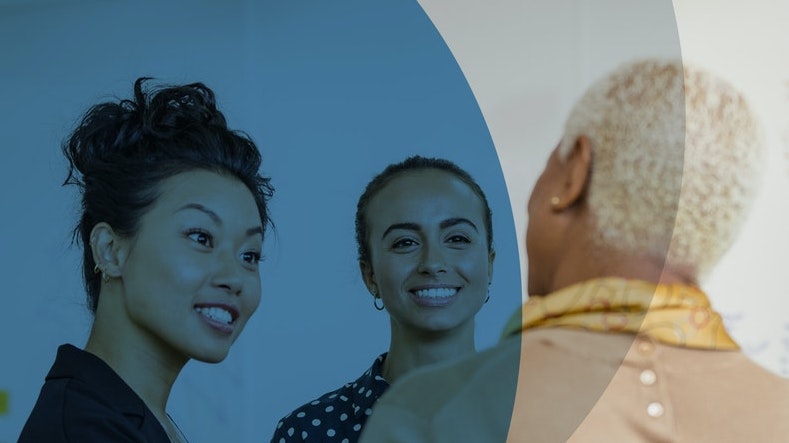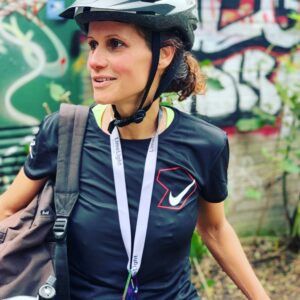
This article first appeared in Conference News on 19th October 2022
Totem’s Alex Hughes and Informa Connect’s Sarah Lock met with Conference News Editor Martin Fullard to discuss communities and the future of events.
The Covid-19 pandemic expedited a change in behaviour when it came to events. The industry has changed, and now rather than a two-dimensional transaction between speaker and delegate, community members themselves are able to dictate what they want, when they want it, and to be able to absorb it over whichever medium they choose.
Alex Hughes is co-founder of Totem, a 360-degress events platform which harnesses the power of community to maximise knowledge exchange and impact. He explains that behavioural change has revealed an exciting time for events. “Every business event has always been about community. If you run events, if you build an audience, and create content, community is fundamental to success,” he says.
“What has changed is that communities at events tend to be siloed, and historically you met once or twice a year. The pandemic has completely changed everything, creating a widespread shift to online; it’s a paradigm shift.
“We’ve started to see communities within communities, community segmentation, these communities giving you lots and lots of data, which is basically why we built Reef.” Hughes describes Reef as an ecosystem for organiser’s live and on-demand content.
With its in-depth reporting function, it can map that data across the ecosystem. Hughes notes: “This starts to give you indications of the strength of your events and communities and where new revenue opportunities might be created.” Hughes says that people are today more selective of which events they attend, and that having a community rich in content is a necessity.
“There’s not as much face-to-face work as there used to be, we use available platforms to communicate, there’s a lot of hybrid working, and this is all evidence of a behaviour shift,” he notes. “People will be much more selective about what they choose to attend. It’s not the end of live events, but people are going to be much more selective. You’re going to need to work a lot harder to get people to those live events. And that, for me, is where building a rich, a diverse and a long-lasting community really comes in.”
How to build a community
How do you build a community? “That’s the million-dollar question, isn’t it?” says Hughes. “You need to start small, you need to take people on a journey. “My advice would be to start small, test and learn and have an iterative approach and pick a niche within your niche. Don’t try and do everything at once. Your audience is there, and they know best. Grow that niche and integrate to generate what we call the “flywheel effect”.
“The flywheel effect is going to be fundamental to what you want to do within growing a community. Great content will attract an audience that then attracts your sponsors. The flywheel starts to turn and that will ultimately then lead to growth.”
Hughes says it is important to understand that the best content can often derive from the community members themselves. “That’s an important point; the biggest concern we hear from the event organisers is how much content do they need to produce. It is less about the volume produced, and it’s much more about being smart with the content you can produce. This is about reusing, recycling, repurposing that content.
“Think about your live events: it’s an hour-long session, do people really want to sit and watch that hour of that content in full when watching on-demand? Some people will, but why can’t we give them highlights? Can we break down that content and make it more accessible in shorter bursts?
“Understanding how your user consumes that content is as important as the content itself.”
Where is everyone?
People are spread out across multiple channels, does Totem have the means to be able to help organsiers understand where their community is gathering? “It’s all about data and connecting data points,” says Hughes. “A CMO is interested in marketing, they read articles, they go to live events, they watch webinars: marketing content is their channel.
“We are served content that that is relevant to us in our daily lives; it’s called programmatic advertising. “This is as much about behavioural data and how we can learn from it and put it to good use. At Totem, what we do is we organise your live and your on-demand content across a single platform Reef.
“It’s a holistic digital engagement ecosystem, which has everything you need for events, learning and building communities in one single place. You can pick and choose the content that is right for your audience or the delivery mechanism that is right for your audience.
It’s where you can build communities and where it all hangs together to house this rich content, all year round, always on.”
Making the concept work
Sarah Lock is marketing acceleration director at Informa Connect, and it’s within her remit to ensure that Totem is being used effectively to enhance the community experience across her events.
“One of my focuses is making sure that Totem works for all of our events to deliver our in-person and hybrid experiences.” It’s a wide-ranging portfolio, with client sectors including life science, biotech, pharma, and finance. “We span many portfolios so there’s obviously subject matter goals, but across Informa Connect, people want to engage in the content, they want to meet others. Then they want to do business at our events,” she says.
Lock is of the opinion that if you have equal needs between two segments, then you will be off to a good start, but how do you measure the success of a community?
“Initially it’s about numbers, and then measuring the growth over a period,” she says. “You also need to measure how often people are logging in and how often they’re coming back. As it grows, it’s important to be smart with the behavioural data. We look at what content people are consuming and establish the value that they place on that piece, so that you can then start creating a space that’s valuable for those audiences and cutting out what’s not.”
How, then, has Informa Connects leveraged the power of Totem to enhance their communities? “When we’re launching new concepts and testing new things in the market, Totem provide the product development support to enable us to do that at a pace. We capitalise on their extensive experience in the industry as well,” says Lock. “So hopefully, by putting more brains together, we’re going to create better experiences for the industry. The community benefits from our product marketing and event industry experience, and we, hopefully, help enhance Totem’s technology even further.”
Community, then, isn’t just an en vogue word for the times. An event in isolation of itself will only stretch so far. It was once an outlandish concept, but today, market-driven community engagement is the new normal.

